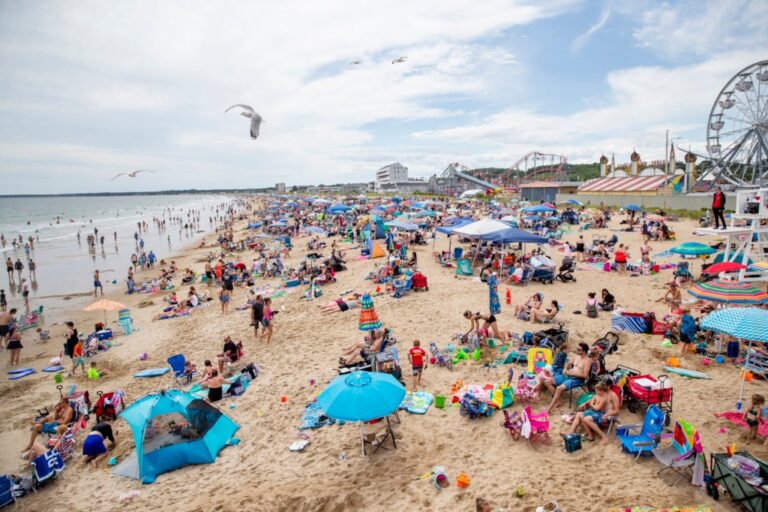Tourists have been returning to Maine with cash to spare since the COVID-19 pandemic spread around the world, keeping people at home and cutting off traditional spending avenues, creating unprecedented levels of pent-up consumer demand.
Slightly fewer tourists visited the state last year than in 2022 (15.3 million vs. 15.9 million), but those visitors spent more ($9.1 million vs. $8.6 billion).
With the official start of the peak summer season fast approaching, there’s no reason to expect this year will be no different and those in the industry are optimistic.
According to the Maine Tourism Office, 15.6 million tourists visited the state in 2021, the second year of the pandemic, and spent $7.8 billion, up from 12.1 million in 2020. In 2019, there were 16.5 million tourists and they spent $6.5 billion, a then-record.
Performance in 2020 was better than feared, and as one travel agent said at the time, Maine was “perceived as a safe destination.”
Maine has also long been a beneficiary of a trend that analysts sometimes call “slow travel,” in which tourists choose destinations with a longer, more fulfilling stay in mind, benefiting the local economy. Last year, a research firm hired by the state noted that unlike other U.S. hotspots, tourists tend to “soak” in Maine. Mainers, who have grown accustomed to the clockwork tides of “summer tourists” for years, probably didn’t need to read the report.
Last summer’s rain and fog did nothing to help the hotel industry and was especially hard on visitation to campgrounds and national parks, especially Acadia National Park, where decisions and engagements are heavily dependent on weather forecasts.
But what is now preventing a full return to pre-pandemic health conditions even more than drizzle and overcast weather is a chronic labor shortage.
According to the tourism department, over 70% of Maine businesses went into the summer season last year short-staffed, and the challenges this creates – and the economic opportunities Maine stands to miss out on – cannot be overstated.
Unlike the weather, the labor market is something we can directly affect and control. Senators Susan Collins and Angus King of Maine have jointly lobbied the Department of Homeland Security and the Department of Labor to increase the number of H-2B visas available.
Sen. Collins seized the opportunity to make that case again during a question-and-answer session with Acting Secretary of Labor Julie Su earlier this month. “H-2B visas are extremely important to the state because we receive 10 times as many visitors to Maine as our state’s population,” Collins said.
The additional 64,716 H-2B visas being sought need to be made available. This is a no-brainer.
In a similar spirit elsewhere, sensible reforms to work authorizations for asylum seekers could make life easier for struggling hospitality employers. Members of Maine’s congressional delegation are again pushing hard at the federal level. Writing in the Press Herald last week, Rep. Cherie Pingree accused the government of “getting in the way of a perfect marriage between eager workers and eager employers to hire.”
In his editorial, Pingree cited Saco-based seafood company Luke’s Lobster as an example, noting that “while operating at about 80 percent of its usual summer staffing, the company is now operating at about 50 percent and is purchasing, processing and selling less lobster than last year.”
The company says many potential employees leave the U.S. for Canada because they are waiting too long for work authorization. This burdensome, bureaucratic reality is simply unacceptable. Pingree’s bipartisan Asylum Seeker Work Authorization Act, which would reduce the wait time for status from 180 days to 30 days, deserves to be passed with strong support.
You don’t have to be a lobsterman, T-shirt seller, hotelier or server to find reason to support better conditions for the state’s hospitality industry (or to look beyond the long lunch lines and horrible traffic jams). Earlier this year, the Maine Tourism Board broke down last year’s numbers in terms that might impress the average taxpayer: In total, tourists in 2023 will bring $16.4 billion to the Maine economy and reduce taxes for each Maine household by $2,467.
Copy story link
Invalid username/password.
Please check your email to confirm and complete your registration.
To reset your password, please use the form below. After submitting your account email address, you will receive an email with a reset code.
” previous
Jim Fossell: Debate “reforms” aren’t enough
Related article


